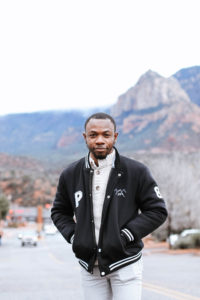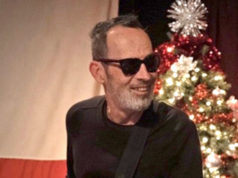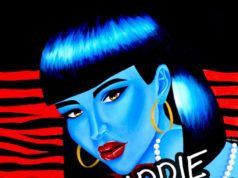Social consciousness has been a pillar of hip-hop since it was originally blasted out of boomboxes aimed at break dancers on cardboard-covered parking lots in The Bronx in the ’70s. Sadly, over the last few decades, the erudite proselytizing of the likes of Chuck D and KRS-One — as they tackled controversial topics like systemic racism and economic injustice — has slowly been replaced by an increasing glut of garish and banal mumble rap verses bragging about wealth and sex or about how well one can rap about wealth and sex. At least when it comes to what typically gets pushed on the radio or into the clubs.
Don’t get me wrong. The world certainly has a place for turn-your-brain-off-and-move-type bangers. Even Outkast had “Hey, Ya!” However, in this generic middle-aged white dude’s opinion (which no one asked for and readers can decidedly ignore), the vanguard of the genre should always honor the tradition of enlightenment and social justice.
Thankfully, our fair burg is still host to a handful of astute MCs. Cats like Lou Charle$, SageModeWrex, Dru B Shinin’, and Clay Perry, to name a few, are homegrown artists who appear to put some actual thought into their bars and in so doing provoke thoughts. Seeking these cats out is one area where Dear Reader should definitely listen to my opinion. You will be rewarded.

As you will with KooKusi, a new rapper who’s recently come onto my radar. This smooth-flow Ghanaian transplant raises the bar of hip-hop braininess considerably. Though he heralds from more than 10,000 miles away, his positive, inspiring voice, in my mind, is just what any local hip-hop scene needs.
Back in February, KooKusi (a name taken from his father’s nickname, a sort of conjunction of “Kofi Kusi,” the given name they both share) dropped a seven-song EP. On , rapping in and out of a shifting blend of English and a Ghanaian pidgin called Acan (itself a mix of three native dialects), KooKusi takes on the subject of inferiority complexes. (The project’s title hints at a cause of one of his own insecurities.) Though slight in physical stature, Kusi’s liquid-mercury vocal slide proves he has a really big brain. And an even bigger heart. His lessons on self-deprecation, validation-seeking, and judgmental stereotypes, and how to overcome them, hit home even though American listeners might only grab a few recognizable words out of the passing phrases.
When the phrases do pop, Kusi has a Dylan Thomas-ian poetic tilt. Such as the line paraphrased from “Stereotypes,” in which he recognizes his own hypocrisy: “I have not removed the log in my eye / Though I call out other people for the speck in theirs.”
Having been in the states for just a year, KooKusi admits it’s been challenging for him to establish himself in the local hip-hop scene. It’s hard enough for rappers to make an impression in the game even if they grew up down the street. His difficulty is compounded by the fact that he’s a pharmacist by day and currently a Ph.D. student studying biomedical science at The University of North Texas Health Science Center at Fort Worth, specializing in research in neurology and substance abuse, not to mention moonlighting as a photographer and videographer as well. Yet he still feels called to bring a positive message to the hip-hop community.

His latest effort in this pursuit is with a new video for his latest track “No Where Cool,” a title derived from an Acan phrase meaning “nothing is easy.” In the video, Kusi wrangles with feelings of regret for moving so far from home to a country wrought with so many racial, economic, and violent challenges. A phone exchange with a friend from back home who is pleading with him to help him in his own escape from their native country reminds him of the reasons he came to the United States in the first place — a corrupt government and a rigid social hierarchy — though these issues seem abstract to the newfound threat of rampant gun violence. As a result, he exists in a sort of in-between the two opposing flawed countries.
He summed his thoughts on the disparate lonely in-betweenness in his signature poetic way: “They say the grass is always greener somewhere else, but that isn’t true. The grass is greener wherever you water it, so you might as well water the grass where you are.”
These are the types of lessons hip-hop scenes need, whether you can immediately understand the language they are delivered in or not. — Patrick Higgins












